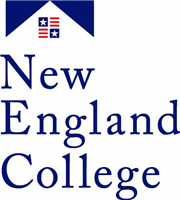What do they do?
Observe gambling operation for irregular activities such as cheating or theft by either employees or patrons. Investigate potential threats to gambling assets such as money, chips, and gambling equipment. Act as oversight and security agent for management and customers.
Also known as:
Casino Enforcement Agent, Dual Rate Surveillance Officer, Gaming Investigator, Security Officer, Surveillance Agent, Surveillance Inspector, Surveillance Investigator, Surveillance Monitor, Surveillance Observer, Surveillance Officer, Surveillance Operator, Surveillance Technician
-
9.5%
Change
Ranks #31 in job growth rate30Job Openings
Ranks #21 in net job growth
Colleges with the most graduates that become Gambling Surveillance Officers and Gambling Investigators
-
New England College
Henniker, NH
-
D A Dorsey Technical College
Miami, FL
-
UEI College-Fresno
Fresno, CA
-
University of New Haven
West Haven, CT
-
Hillsborough Community College
Tampa, FL
Looking for colleges that offer a specific major? Use the College Match Tool to find your best-matched schools and discover your estimated Net Price!
- Doctorate or Professional Degree (1%)
- Master's degree (3%)
- Bachelor's degree (14%)
- Associate's degree (11%)
- Some college, no degree (30%)
- High school diploma equivalent (35%)
- Less than high school diploma (6%)
People in this career often have these skills:
- Monitoring - Monitoring/Assessing performance of yourself, other individuals, or organizations to make improvements or take corrective action.
- Critical Thinking - Using logic and reasoning to identify the strengths and weaknesses of alternative solutions, conclusions, or approaches to problems.
- Speaking - Talking to others to convey information effectively.
- Judgment and Decision Making - Considering the relative costs and benefits of potential actions to choose the most appropriate one.
People in this career often know a lot about:
- English Language - Knowledge of the structure and content of the English language including the meaning and spelling of words, rules of composition, and grammar.
- Public Safety and Security - Knowledge of relevant equipment, policies, procedures, and strategies to promote effective local, state, or national security operations for the protection of people, data, property, and institutions.
- Computers and Electronics - Knowledge of circuit boards, processors, chips, electronic equipment, and computer hardware and software, including applications and programming.
- Mathematics - Knowledge of arithmetic, algebra, geometry, calculus, statistics, and their applications.
- Administrative - Knowledge of administrative and office procedures and systems such as word processing, managing files and records, stenography and transcription, designing forms, and workplace terminology.
- Education and Training - Knowledge of principles and methods for curriculum and training design, teaching and instruction for individuals and groups, and the measurement of training effects.
People in this career often have talent in:
- Problem Sensitivity - The ability to tell when something is wrong or is likely to go wrong. It does not involve solving the problem, only recognizing that there is a problem.
- Selective Attention - The ability to concentrate on a task over a period of time without being distracted.
- Far Vision - The ability to see details at a distance.
- Oral Comprehension - The ability to listen to and understand information and ideas presented through spoken words and sentences.
- Written Expression - The ability to communicate information and ideas in writing so others will understand.
- Inductive Reasoning - The ability to combine pieces of information to form general rules or conclusions (includes finding a relationship among seemingly unrelated events).
- Near Vision - The ability to see details at close range (within a few feet of the observer).
- Oral Expression - The ability to communicate information and ideas in speaking so others will understand.
- Flexibility of Closure - The ability to identify or detect a known pattern (a figure, object, word, or sound) that is hidden in other distracting material.
- Deductive Reasoning - The ability to apply general rules to specific problems to produce answers that make sense.
- Perceptual Speed - The ability to quickly and accurately compare similarities and differences among sets of letters, numbers, objects, pictures, or patterns. The things to be compared may be presented at the same time or one after the other. This ability also includes comparing a presented object with a remembered object.
People in this career often do these activities:
- Monitor operations to ensure compliance with safety or security policies or regulations.
- Observe individuals' activities to gather information or compile evidence.
- Operate surveillance equipment to detect suspicious or illegal activities.
- Discuss performance, complaints, or violations with supervisors.
- Compile operational data.
- Compile data or documentation.
- Record operational or environmental data.
- Inspect facilities or equipment to ensure specifications are met.
- Inspect equipment or systems.
- Inspect materials or equipment to determine need for repair or replacement.
- Maintain surveillance of individuals or establishments.
- Train employees in proper work procedures.
- Direct security operations.
This page includes data from:

 Occupation statistics: USDOL U.S. Bureau of Labor Statistics Occupational Employment Statistics
Occupation statistics: USDOL U.S. Bureau of Labor Statistics Occupational Employment Statistics







